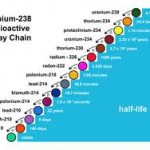Twelve years ago, Portugal eliminated criminal penalties for drug users. Since then, those caught with small amounts of marijuana, cocaine or heroin go unindicted and possession is a misdemeanor on par with illegal parking. Experts are pleased with the results.
Before he got involved in the global war on drugs, João Goulão was a family physician with his own practice in Faro, on Portugal’s Algarve coast. Arriving in his small office in Lisbon, the 58-year-old tosses his jacket aside, leaving his shirt collar crooked. He looks a little tired from the many trips he’s taken lately — the world wants to know exactly how the experiment in Portugal is going. Goulão is no longer able to accept all the invitations he receives. He adds his latest piece of mail to the mountain of papers on his desk.
From this office, where the air conditioning stopped working this morning, Goulão keeps watch over one of the world’s largest experiments in drug policy.
One gram of heroin, two grams of cocaine, 25 grams of marijuana leaves or five grams of hashish: These are the drug quantities one can legally purchase and possess in Portugal, carrying them through the streets of Lisbon in a pants pocket, say, without fear of repercussion. MDMA — the active ingredient in ecstasy — and amphetamines — including speed and meth — can also be possessed in amounts up to one gram. That’s roughly enough of each of these drugs to last 10 days.
These are the amounts listed in a table appended to Portugal’s Law 30/2000. Goulão participated in creating this law, which has put his country at the forefront of experimental approaches to drug control. Portugal paved a new path when it decided to decriminalize drugs of all kinds.
“We figured perhaps this way we would be better able get things under control,” Goulão explains. “Criminalization certainly wasn’t working all that well.”
Much the Same as a Parking Violation
As part of its war on drugs, Portugal has stopped prosecuting users. The substances listed in the Law 30/2000 table are still illegal in Portugal — “Otherwise we would have gotten into trouble with the UN,” Goulão explains — but using these drugs is nothing more than a misdemeanor, much the same as a parking violation.
Why set the limits on these drugs at 10 days’ worth of use, though?
“Well, it’s a limit, which by its nature is arbitrary,” Goulão says. Now the head of Portugal’s national anti-drug program and an important figure in Portuguese health policy, he still talks like an easygoing family doctor. Arrayed on Goulão’s windowsill are photographs, including one of him with Richard Branson, the British billionaire and hot air balloon operator. Another shows Goulão with the king of Spain. Both these men have received personal briefings on Portugal’s new drug program from Goulão.
“At the point when we designed the law, we had hardly any data to draw on,” Goulão relates. “We weren’t the least bit certain this would work.”
The question at stake: How can a government keep its citizens from taking dangerous drugs? One way is to crack down on those who provide the drugs — the cartels, the middle men and the street dealers. Another approach is to focus on the customers — arresting them, trying them and imprisoning them. Legal prosecution — as both a control mechanism and a deterrent — is the chosen approach for most governments.
Giving Up on the Idea of a Drug-Free World
“It’s important that we prevent people from buying drugs, and taking drugs, using every method at our disposal,” says Manuel Pinto Coelho, 64, the last great opponent of Goulão’s experiment. Pinto Coelho wants his country to return to normalcy, in the form of the tough war on drugsthat much of the rest of the world conducts.
Pinto Coelho is a doctor too. He has run rehab centers and written books about addiction. Now he’s at odds with former colleagues and with “the system,” as he says.
His greatest concern is that his country has given up on the idea of a drug-free world. How, Pinto Coelho asks, is it possible to keep young people away from drugs, when everyone knows exactly how many pills can legally be carried around? He still believes deterrents are the best form of prevention and that cold turkey withdrawal is the best treatment method. He is also fighting the extensive methadone program Portugal began as part of its drug policy reform, which now provides tens of thousands of heroin addicts with this substitute drug.
These days, Pinto Coelho earns his living running diet clinics, but he spends his evenings writing letters and drafting presentations on his country’s “absurd drug experiment.” He travels to symposiums to warn the rest of the world of its dangers. At home in Portugal, his critical perspective has made him an outsider, but he says he’s been well received abroad. As if offering proof, he shows a fact sheet issued by the United States Office of National Drug Control Policy, a brief and skeptically worded report on the Portuguese experiment.
The Freedom that Overwhelmed the Country
When João Goulão wants to explain why it is Portugal in particular that came up with the idea to stop prosecuting drug users, he starts with the country’s Carnation Revolution.
In 1974, Portugal broke free from nearly 50 years of military dictatorship, a political shift symbolized by the carnations soldiers stuck in the muzzles of their rifles.”Suddenly, the drugs were there,” Goulão says, as Portuguese returning from the country’s overseas colonies brought marijuana with them. Goulão, too, says he smoked pot back then. He was in his early twenties and “drugs promised us freedom.”
But it was a freedom that soon overwhelmed the country. When Goulão established his doctor’s practice in Faro, he soon found himself approached by parents whose children were no longer just smoking joints, but had moved on to heroin. Sometimes the children came to him as well, and Goulão had no idea how to treat them. When the first state-run rehab clinic opened in Lisbon, Goulão attended a training course there.
At that point, he says, the heroin epidemic was just beginning.
In the 1980s, cheap heroin from Afghanistan and Pakistan began flooding Europe. Portugal was not the only country affected, but Goulão says his nation was hit particularly hard, because people here had little idea how to handle drugs. “We were naïve,” he says.
The number of people taking illegal drugs in Portugal was low compared with other countries, but of those who did consume drugs, an unusually high number of them fell into the category that specialists in this field refer to as “problem drug users.”
From the pile of papers on his desk, Goulão unearths a copy of a speech he recently gave in Paris. Flipping through it, he finds the figure he’s looking for: 100,000. This is the number of severely drug-addicted people in Portugal at the height of the epidemic, in the mid-1990s. Portugal’s total population at the time was just under 10 million. The number of drug addicts who became infected with HIV was also considerably higher than in most other countries.
A drug slum formed in Lisbon, at the edge of a neighborhood known as Casal Ventoso. Here junkies slept in shacks or in the garbage, in extremely poor conditions. “They shot up on the street, and they died on the street,” Goulão says. Anyone in Portugal could observe this phenomenon — on TV, in newspaper pictures or even from the nearby highway.
– More… ➡
– See also this story: ➡



